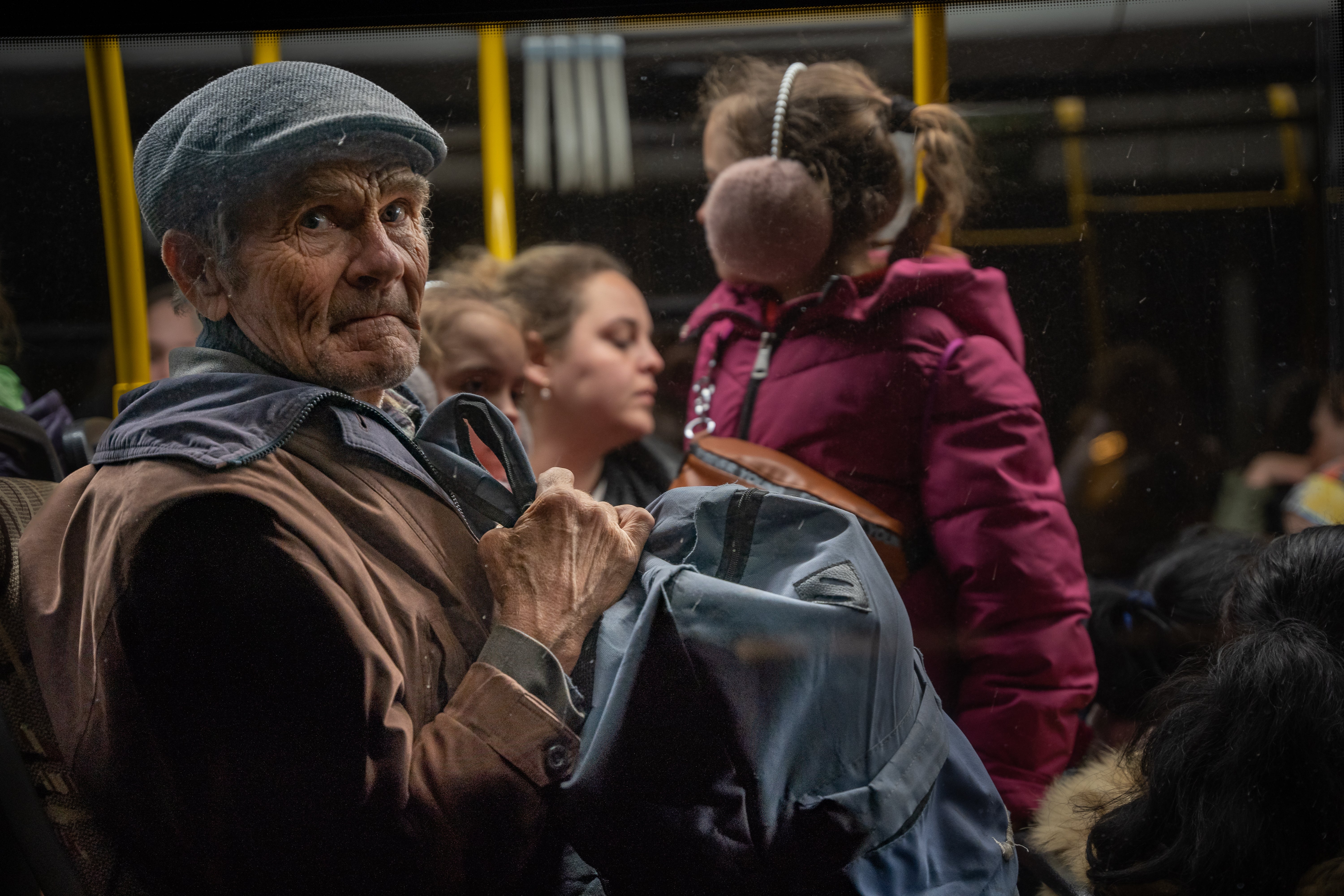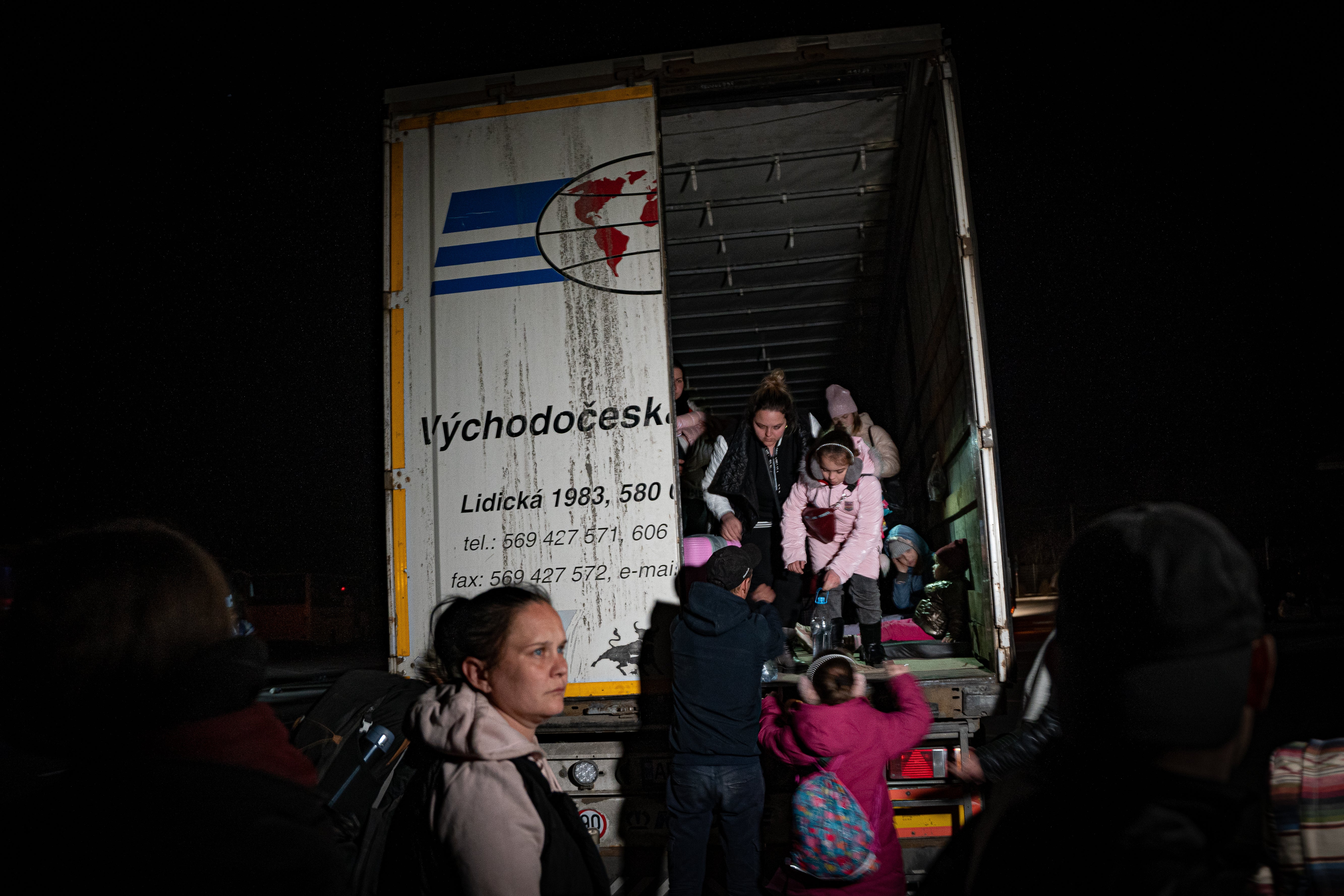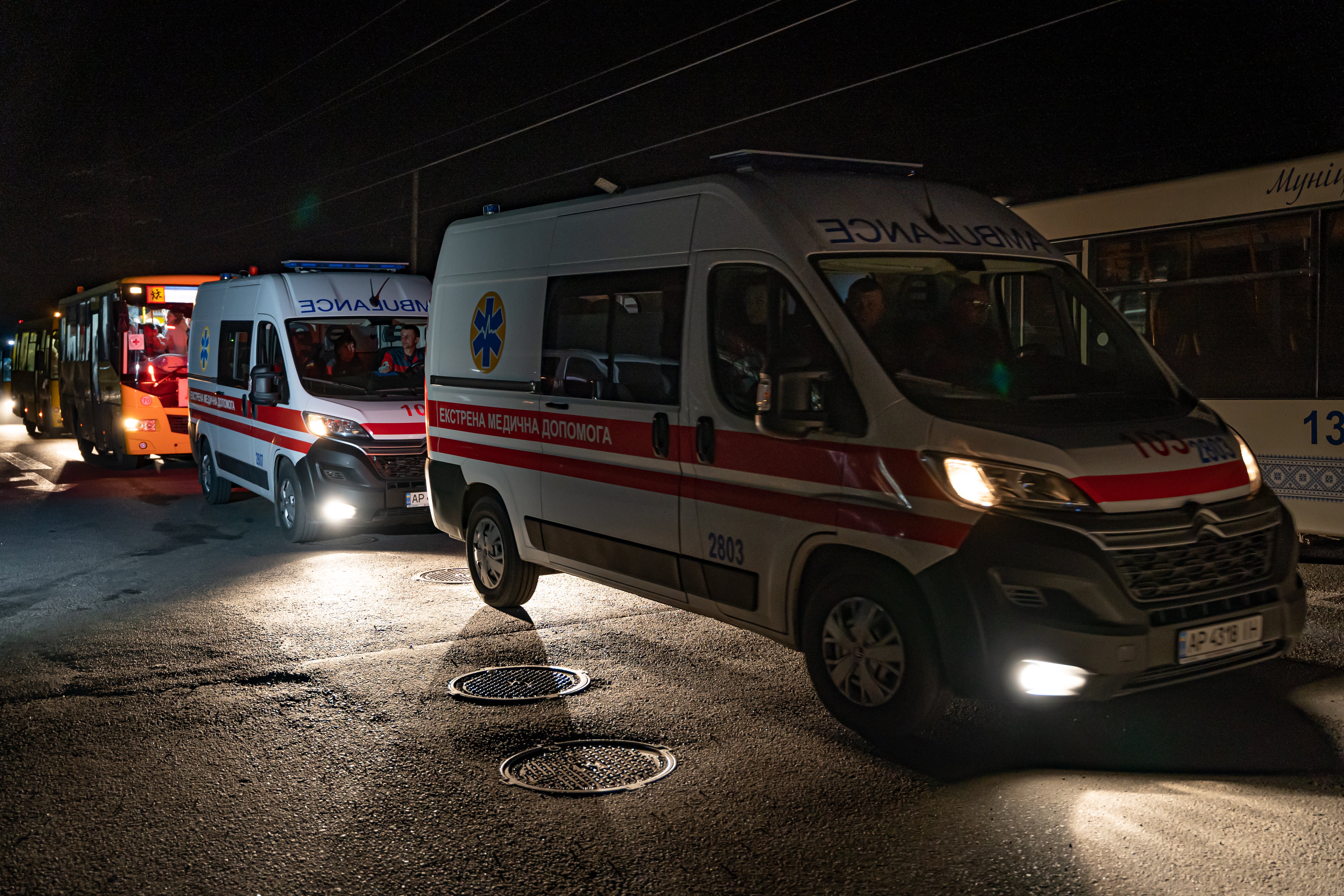‘The relief is immense’: Buses rescue thousands of Mariupol civilians as Russia accused of blocking evacuation
Civilians who managed to flee devastated city tell The Independent their hometown is ‘utterly destroyed’

Your support helps us to tell the story
From reproductive rights to climate change to Big Tech, The Independent is on the ground when the story is developing. Whether it's investigating the financials of Elon Musk's pro-Trump PAC or producing our latest documentary, 'The A Word', which shines a light on the American women fighting for reproductive rights, we know how important it is to parse out the facts from the messaging.
At such a critical moment in US history, we need reporters on the ground. Your donation allows us to keep sending journalists to speak to both sides of the story.
The Independent is trusted by Americans across the entire political spectrum. And unlike many other quality news outlets, we choose not to lock Americans out of our reporting and analysis with paywalls. We believe quality journalism should be available to everyone, paid for by those who can afford it.
Your support makes all the difference.More than 40 buses carrying thousands of people who fled Mariupol arrived in the eastern Ukrainian city of Zaporizhzhia late on Friday in what the Red Cross said was the largest evacuation of civilians from the besieged city since the war began.
A Ukrainian Red Cross official who was on the convoy told The Independent 48 buses had transported a total of 3,500 people, mostly from Mariupol, who had fled the worst of the fighting to Russian-occupied territory, where they had since been stuck. Also in the convoy were five vehicles, including two transport trucks, carrying people who escaped the Russian-occupied city of Melitopol, northwest of Mariupol.
The buses came on the day attempts to open a direct humanitarian corridor to Mariupol collapsed. An estimated 170,000 people remain trapped in the devastated city. Ukrainian officials accused Russia of breaking its promises over a humanitarian corridor, blocking buses and stealing aid.
The International Committee of the Red Cross (ICRC) said late on Friday that it had postponed its attempt to directly evacuate people from the strategic port location but would try again on Saturday. The ICRC had hoped to also deliver two trucks of humanitarian aid, including enough basic medical supplies to last 2,000 people for three months.
In Zaporizhzhya’s main reception centres, however, there were emotional scenes as families torn apart by war were reunited and those who have lived under the heaviest bombardment in the war said they had finally got to safety.
Most of those in the convoy had escaped Mariupol by their own means a few days ago, taking private cars, volunteer buses or even walking through shelling as no official safe passages have been secured since Russia launched its invasion in February.

Some told The Independent they had been stranded for days in Berdyansk, a port city 200km (124 miles) south of Zaporizhzhia and Melitopal just along the coast from Mariupol, that has been controlled by Russian forces since late February.
“When I crossed into Ukrainian held territory the relief was immense, you can’t imagine,” said Ekaterina, 72, who fled Mariupol last week with her family after spending weeks living underground. She said they had got stuck in Berdyansk as Russian forces would not let them pass, until they were able to join Friday’s convoy on a journey which took 10 hours.
“Mariupol, my hometown is utterly destroyed, you can’t imagine the destruction,” she said in tears. “Why the zeal to pound it like that, why the hatred?”
Victor, 22, a journalism student from Mariupol who was also in the evacuation convoy, compared the level of devastation in his city to the now-abandoned town of Prypyat, which was evacuated following the Chernobyl nuclear disaster in 1986.
“Mariupol is the second Prypyat but at least that town was still left intact. Mariupol hasn’t been,” he said.
Maksym Shyshka, a Red Cross volunteer on the convoy, told The Independent they had managed to evacuate 3,500 people in 48 buses.
“It is the largest evacuation of people who have escaped Mariupol so far,” he said.
The Independent was not able to verify the number of people evacuated but counted at least 30 vehicles.
Repeated efforts to deliver aid to Mariupol and help civilians evacuate have failed.

The city’s capture would be a significant victory for the Russians, giving them an unbroken land bridge to annexed Crimea. It has suffered some of the heaviest shelling by Russian forces since Vladimir Putin’s invasion began on 24 February.
Russia, which has referred to its invasion as a “special military operation” and claimed it intended to “denazify” Ukraine, has repeatedly denied it is targeting civilians.
The latest attempt at a safe passage for people in Mariupol was initially planned for Thursday, when Ukrainian deputy prime minister Iryna Vereshchuk said the ICRC had confirmed that Russia had agreed to open a humanitarian corridor.
Yet Ms Vereshchuk later said Russian soldiers had blocked a convoy and seized 14 tonnes of food and medical supplies bound for the city.
The ICRC, which had initially hoped to lead the convoy of 45 buses, told The Independent on Friday morning they were making their own attempt to deliver aid to Mariupol, with the additional aim of securing safe passage for civilians still trapped there.
That failed and they had to turn around, according to a statement.
“The ICRC team, which consists of three vehicles and nine personnel, did not reach Mariupol or facilitate the safe passage of civilians today. They will try again on Saturday to facilitate the safe passage of civilians from Mariupol,“ read the statement.
Join our commenting forum
Join thought-provoking conversations, follow other Independent readers and see their replies
Comments